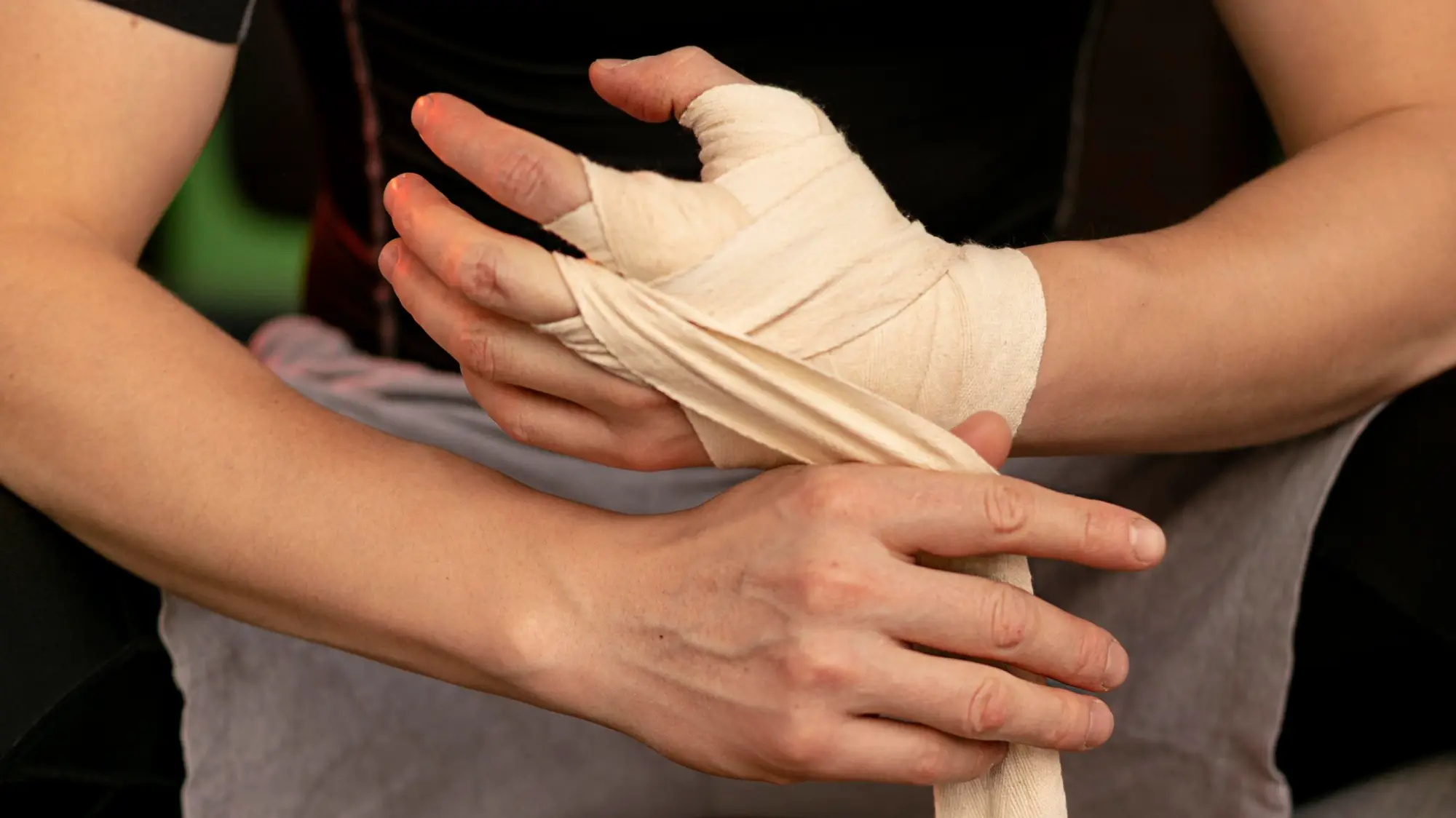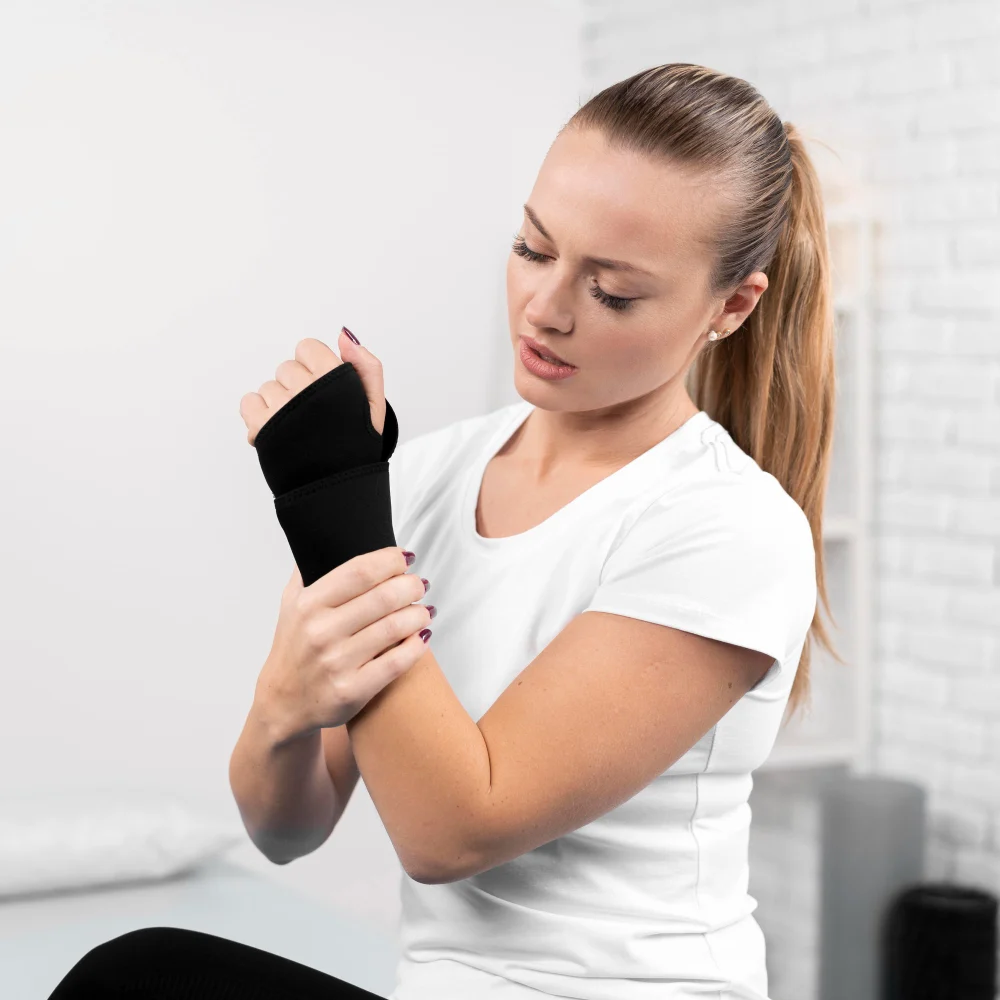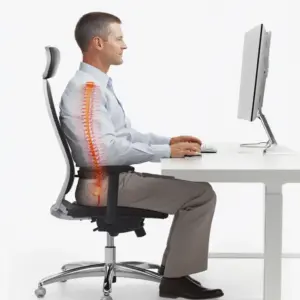Nerve Compression Injuries | Causes & Treatment
Explore safe and effective treatment options for nerve compression injuries to relieve pain, numbness, tingling, and muscle weakness.

Nerve compression injuries
Nerve compression injuries occur when pressure is applied to a nerve, causing it to become irritated or damaged. This pressure can occur at various points along the nerve’s pathway, often leading to pain, numbness, weakness, or tingling. Nerve compression can happen in any part of the body but is most commonly seen in areas where nerves pass through narrow spaces, such as the wrist, elbow, neck, and lower back.

Early Detection Saves Lives
Early detection and treatment are crucial for improving the chances of survival. If you notice any concerning symptoms, consult a healthcare provider immediately.
Signs and Symptoms
Pain
Sharp, burning, or aching pain along the path of the compressed nerve, often radiating to nearby areas. The pain can be persistent or intermittent.
Numbness or Tingling
A sensation of “pins and needles” or complete numbness in the affected area, commonly in the fingers, hands, or feet.
Weakness
Loss of strength in the muscles served by the compressed nerve, which may make it difficult to grip objects, walk, or perform normal activities.
Reduced Sensitivity
Areas served by the affected nerve may become less sensitive to touch, heat, or cold.
Radiating Pain
The pain may radiate to other parts of the body, such as from the neck to the arm (as in cervical radiculopathy) or from the lower back to the legs (as in sciatica).
Loss of Reflexes
In severe cases, reflexes in the affected area may become diminished or absent.
Burning Sensation
The affected area may feel hot or have a burning sensation, often worsening at night or with certain movements.
Blood in Urine
Hematuria - pink, red, or dark urine, the most common symptom
Frequent Urination
Feeling the need to urinate frequently, even when bladder is not full
Painful Urination
Experiencing pain or burning sensation while urinating
Back or Pelvic Pain
Pain that occurs as the cancer grows and spreads
Unexplained Weight Loss
Significant weight loss not related to diet or exercise
Fatigue
Feeling unusually tired or weak without a clear cause
Meet Our Expert Nerve Compression Injury Specialists
Risk Factors
Smoking
Smoking is one of the leading causes of bladder cancer. Chemicals in tobacco smoke can damage the lining of the bladder, increasing the risk.

Gender
Men are at a higher risk of developing bladder cancer than women.

Chronic Bladder Infections or Inflammation
Conditions such as bladder infections and long-term bladder inflammation can increase the risk.

Exposure to Chemicals
Prolonged exposure to certain chemicals, especially those used in the dye industry, rubber production, and chemical manufacturing, increases the risk.

Repetitive Movements
Jobs or activities that involve repetitive motions, like typing, lifting, or certain sports, can put pressure on nerves over time, increasing the risk of compression injuries.

Poor Posture
Bad posture, especially while sitting, can lead to nerve compression, particularly in the neck, lower back, and wrists.

Obesity
Excess body weight places additional pressure on the nerves, especially in the lower back and legs, which can lead to conditions like sciatica or carpal tunnel syndrome.

Age
As we age, our spine and joints naturally undergo wear and tear. This can lead to conditions like spinal stenosis, where narrowing of the spinal canal causes nerve compression.

Pregnancy
The added weight and hormonal changes during pregnancy can increase the risk of nerve compression, particularly in the wrists (carpal tunnel syndrome) and lower back.

Diabetes
Poor blood sugar control can damage nerves over time, leading to diabetic neuropathy and increased susceptibility to compression injuries.

Injury or Trauma
Direct trauma to the body, such as fractures, dislocations, or whiplash, can compress nerves and lead to pain and dysfunction.

Herniated Disc
Discs in the spine that bulge or rupture can put pressure on nearby nerves, leading to nerve compression injuries in the lower back or neck.

Genetics
Some people may be more genetically predisposed to nerve compression conditions, such as those caused by abnormalities in the structure of the spine or joints.

Nerve compression injuries
Diet and Nutrition
Prevention
Diagnosis
Key Services
Key Facilities
- Vitamin B12: Essential for nerve health and regeneration. Deficiencies in B12 can lead to nerve damage and increased susceptibility to compression. Include sources like fish, eggs, dairy products, and fortified cereals.
- Vitamin D: Helps support nerve function and reduces the risk of nerve damage. Sun exposure and foods like fatty fish, fortified dairy, and egg yolks are good sources.
- Omega-3 Fatty Acids: Omega-3s have anti-inflammatory properties that can help reduce nerve inflammation. Include foods like salmon, walnuts, and flaxseeds.
- Magnesium: Magnesium is vital for nerve function and muscle relaxation. A magnesium deficiency can contribute to nerve compression and pain. Include dark leafy greens, nuts, and seeds in your diet.
- Antioxidants: Antioxidants like vitamins C and E help protect nerves from oxidative stress. Citrus fruits, berries, spinach, and bell peppers are rich in these nutrients.
- Protein: Adequate protein intake is essential for nerve repair and healing. Lean meats, beans, and legumes provide the necessary amino acids for tissue regeneration.
- Turmeric and Ginger: Both contain compounds with anti-inflammatory properties that can help reduce nerve inflammation and ease discomfort from nerve compression injuries.
- Hydration: Staying hydrated is important for maintaining the health of tissues, including nerves. Aim to drink plenty of water throughout the day to support nerve function and healing.
- Maintain Proper Posture: Good posture while sitting, standing, and sleeping is crucial in preventing nerve compression. Use ergonomic chairs, avoid slouching, and ensure your workstation is set up to promote spinal alignment.
- Take Frequent Breaks: If you have a job or activity that involves repetitive movements, such as typing or lifting, take regular breaks to stretch and relax your muscles.
- Strengthen Core and Back Muscles: Regular exercise to strengthen the core and back muscles can help support your spine and prevent nerve compression injuries in the neck and lower back.
- Use Proper Lifting Techniques: When lifting heavy objects, bend your knees and keep your back straight to avoid straining your back and compressing nerves.
- Wear Supportive Footwear: Proper footwear can reduce pressure on nerves in the feet and legs, preventing conditions like plantar fasciitis or sciatica.
- Control Weight: Maintaining a healthy weight reduces the strain on your spine, lower back, and legs, helping to prevent nerve compression.
- Stay Active: Regular physical activity, including stretching, yoga, and low-impact exercises, helps keep your muscles and joints flexible and reduces the risk of nerve compression.
- Avoid Prolonged Positions: Avoid staying in one position for too long, such as sitting at a desk for extended periods. Adjust your posture and move around regularly to reduce pressure on nerves.
- Physical Examination: A doctor will assess symptoms, perform reflex tests, and check for muscle weakness, numbness, or tingling to identify areas affected by nerve compression.
- Nerve Conduction Studies (NCS): NCS test the speed and strength of electrical signals as they pass through the nerves. This can help identify areas where nerve compression is occurring.
- Electromyography (EMG): This test measures the electrical activity of muscles and can help determine whether nerve compression is affecting muscle function.
- MRI (Magnetic Resonance Imaging): MRI provides detailed images of soft tissues and can help detect herniated discs, spinal stenosis, or other structural issues that might be compressing nerves.
- CT Scan (Computed Tomography): A CT scan may be used to visualize bone and tissue structures and identify potential sources of nerve compression, especially in the spine.
- X-rays: X-rays can be useful in detecting fractures, bone spurs, or joint misalignments that could be causing nerve compression.
- Ultrasound: An ultrasound can help evaluate soft tissue and detect conditions like carpal tunnel syndrome, where pressure on the median nerve occurs in the wrist.
- Pain Management: Pain relief is a primary focus in treating nerve compression. This may involve medications like nonsteroidal anti-inflammatory drugs (NSAIDs), steroids, or even nerve-blocking injections.
- Physical Therapy: A physical therapist can help you with strengthening exercises, stretching, and postural training to relieve pressure on compressed nerves and improve mobility.
- Chiropractic Care: Chiropractors may use spinal manipulation techniques to relieve pressure on nerves, particularly in the neck and lower back.
- Surgical Intervention: In severe cases, surgery may be necessary to relieve nerve compression. Procedures like discectomy, laminectomy, or carpal tunnel release may be performed to remove pressure on the nerve.
- Ergonomic Assessments: Occupational therapists or ergonomic specialists can help adjust your workstation or daily habits to reduce stress on your nerves.
- Spinal Decompression Therapy: This non-invasive treatment can help alleviate pressure on spinal nerves, improving symptoms associated with nerve compression in the neck and lower back.
- Neurology Clinics: Specialized clinics focused on the diagnosis and treatment of neurological conditions, including nerve compression injuries.
- Orthopedic Centers: These centers provide treatment for musculoskeletal conditions, including nerve compression injuries related to the spine, joints, and extremities.
- Physical Therapy Centers: Facilities offering rehabilitation programs designed to relieve pain, improve movement, and strengthen muscles to prevent further nerve compression.
- Diagnostic Imaging Centers: Hospitals or clinics equipped with MRI, CT scans, X-rays, and ultrasound to diagnose the cause of nerve compression and guide treatment.
- Surgical Centers: Centers specializing in nerve decompression surgeries, such as discectomy, carpal tunnel release, or spinal surgery, to relieve pressure on the affected nerves.
Top Medical Facilities at Our Multispeciality Hospital – Here’s What Makes Us Different!
Ready to Begin Your Nerve Compression Injury Treatment Journey?
Learn More About Nerve Compression Injury Care
Frequently Asked Questions
Recovery time varies depending on the severity of the compression and treatment approach. Mild cases may improve in weeks with conservative treatments, while severe cases requiring surgery may take several months for full recovery.
Yes, nerve compression injuries can often be prevented with regular physical activity, proper posture, weight management, and taking breaks from repetitive activities to reduce pressure on nerves.
The most common types include carpal tunnel syndrome (wrist), sciatica (lower back), and cervical radiculopathy (neck), often resulting from poor posture, repetitive motions, or spinal disc issues.
